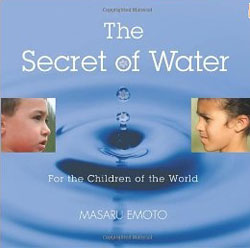"Believe it or not, every thought or feeling you have affects everything around you. Think about it. What happens when you smile at someone? They smile right back! When you share joyful feelings you pass on positive energy and help create joy in other people. And your feelings don't affect just people. They affect the entire planet..."
~Masaru Emoto
Every once in a while, I am inspired to pick up a children’s book. As a researcher accustomed to reading complexly detailed scientific articles from renowned health journals, the simplicity of children's books is altogether refreshing from time to time. And though seemingly juvenile, they are often far more informative than we sophisticated adults give them credit for. Children's books frequently remind of the creative and whimsical simplicities of life that "grown-ups", entranced by to-do-lists and stymied by deadlines, forget.
My recent selection was The Secret of Water: For the Children of the World By Masaru Emoto. Emoto is a Japanese scientist who has enchanted millions with his innovative scientific work showing that thoughts, feelings and words directly effect water-crystal formation. He is known primarily for his best selling book The Hidden Messages in Water, which details his experiments and proposition that, as humans are made mostly of water, we have the capacity to bring about global health and environmental renewal through our positive energy. His children's book brings this message into basic terms for the next generation, teaching about the pattern of the water cycle and each individual's responsibility for protecting this vital resource.
Water purification is undoubtedly an important issue today, as evidenced by the wealth of information in Radiant Life's Water Resource Center. Intricate water purification systems like the 14-Stage Biocompatible System show that water is a truly complex element that needs to be very specifically treated and protected. Yet, while I was aware of these mechanical purification methods, there was something strickingly novel about the idea that something as intangible as our thoughts and words could also change water. On subtle levels, the idea that human energy resonates with the environment and other beings made sense to me. I had read about similar philosophies before in rising fields such as Positive Psychology and in research studies tracking the neurological differences in those practicing compassion-based meditative techniques. I truly wanted to believe such a pure and harmonious philosophy, however somewhere in my analytic conscious there lingered a stubborn sentiment of doubt that I just couldn't rationalize away. It seemed to be a bit too esoteric or unbelievable to be very legitimate. I mulled over the concept for a few days, wondering how, if this theory that our thoughts could change our health and environment were true, we could be missing something so simple in our daily practices. I became insidiously curious, and much to the skeptical eye-rolling of my colleagues, decided I had to try a simple experiment from the Emoto's children's book. What I found was an activity far more meaningful than I had anticipated. Though far from the conclusive hard science we may be used to, this easy to follow exercise requires little time or resources...and in the end, you may be surprised at what you discover.
Water and Plant Experiment
What you need: 2 plant seeds (I used sunflower as they grow easily), 2 cups or containers, fresh soil, 2 watering cans or spray bottles, pure water, two pieces of paper, tape and a permanent marker
1. On one piece of paper write the word "Beautiful" and on the other write the words "No Good" with a permanent marker.

2. Cut out these labels and tape one on each container. Tape a corresponding label to each of the spray water bottles as well.
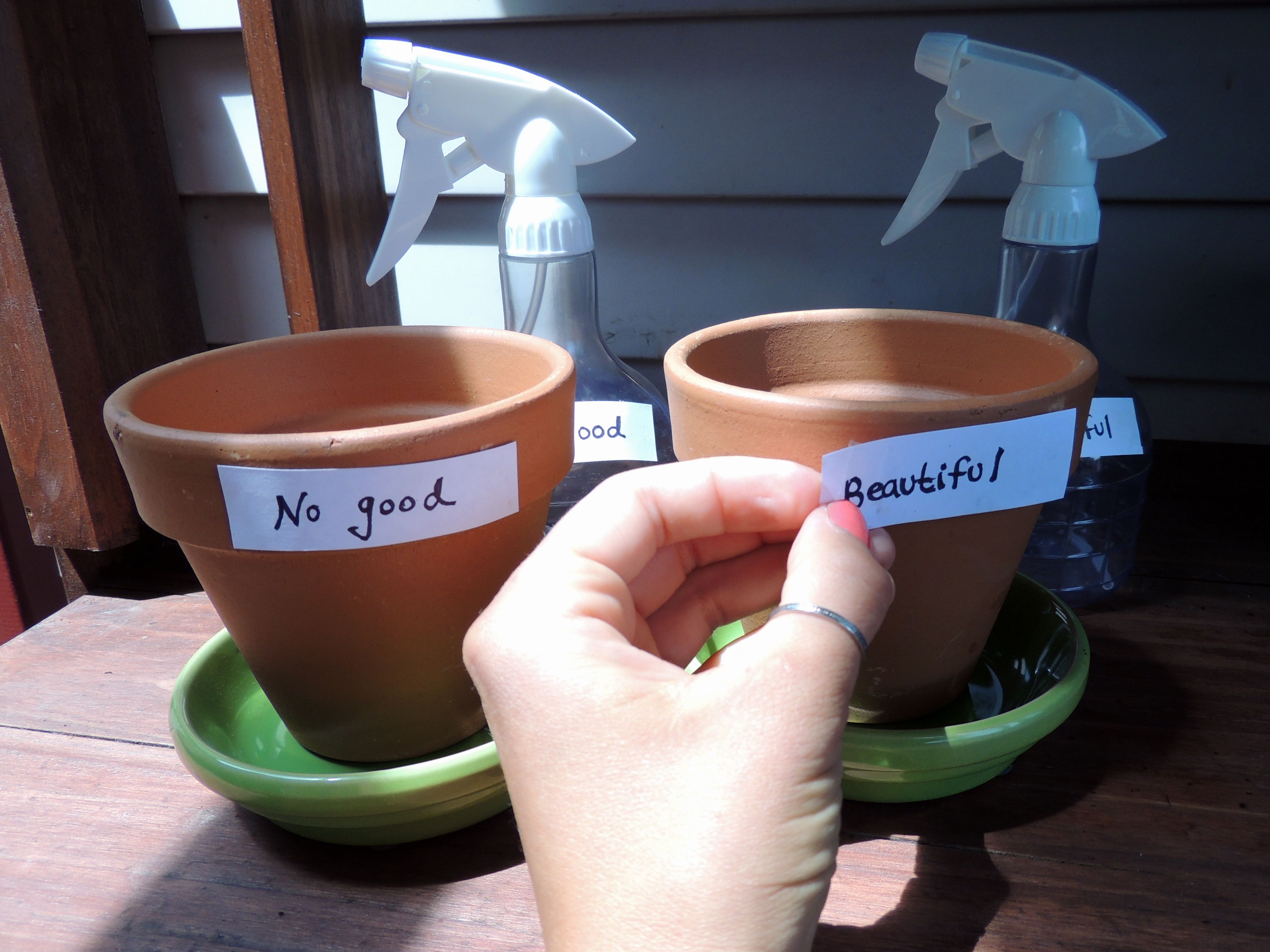
3. Fill containers with soil (preferably organic of course) and plant an equal amount of seeds in each according to instructions on the seed packet.
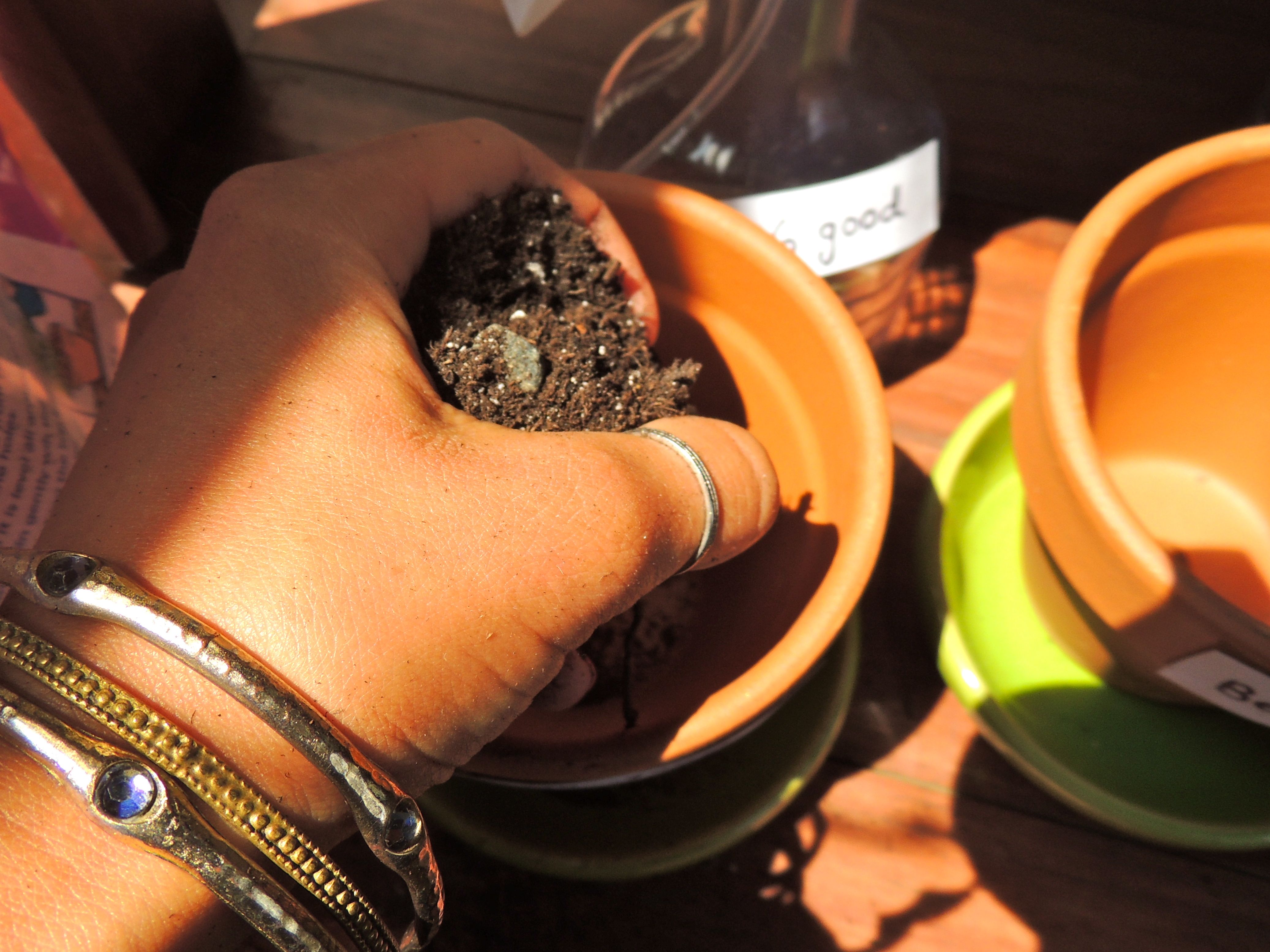
4. Water the containers an equal amount as needed (about three times a week or so) and keep them near sunlight. Every time you water the seeds, read aloud the words taped to the containers. Within a few weeks, you will start to notice seedlings...
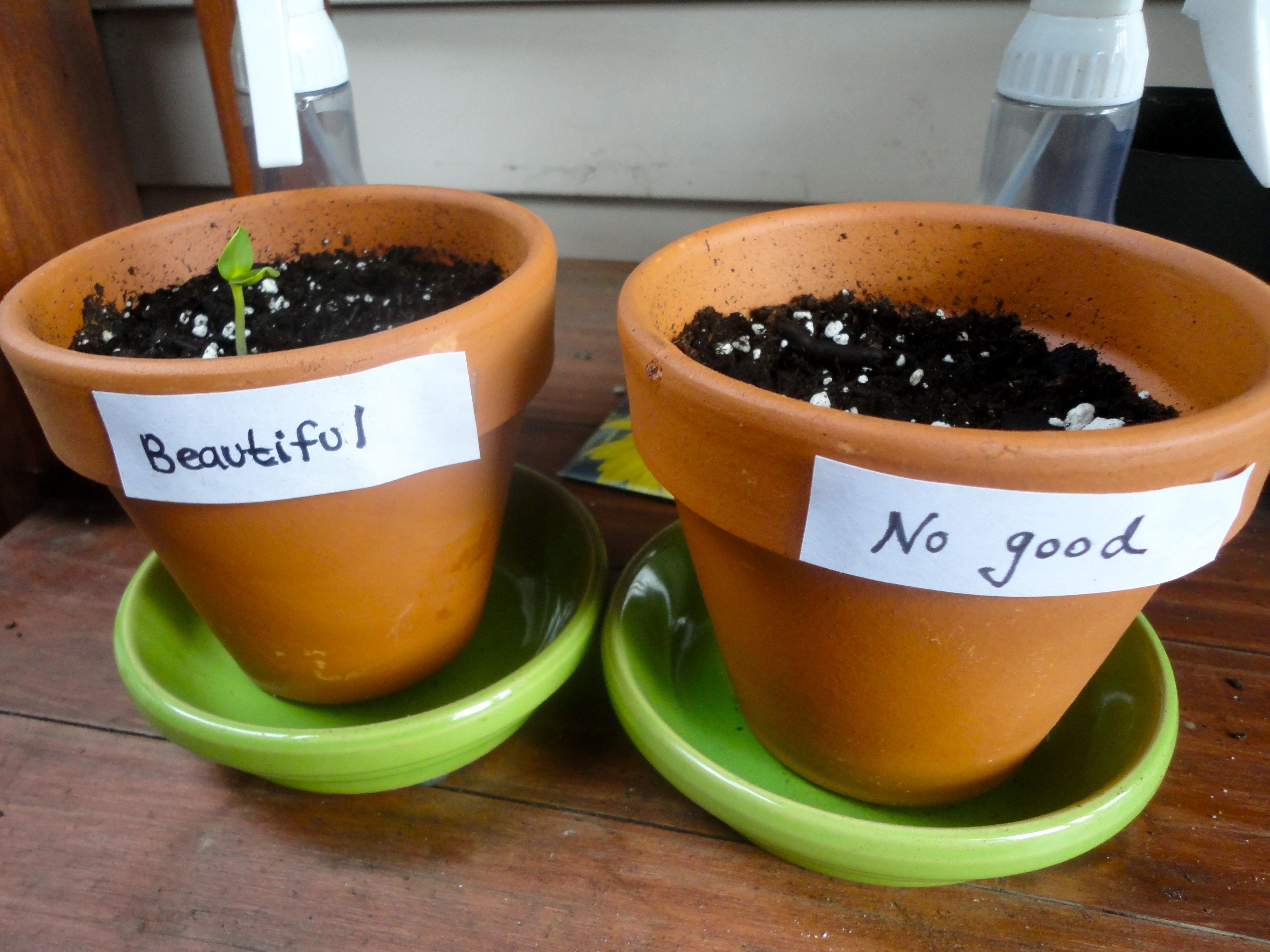
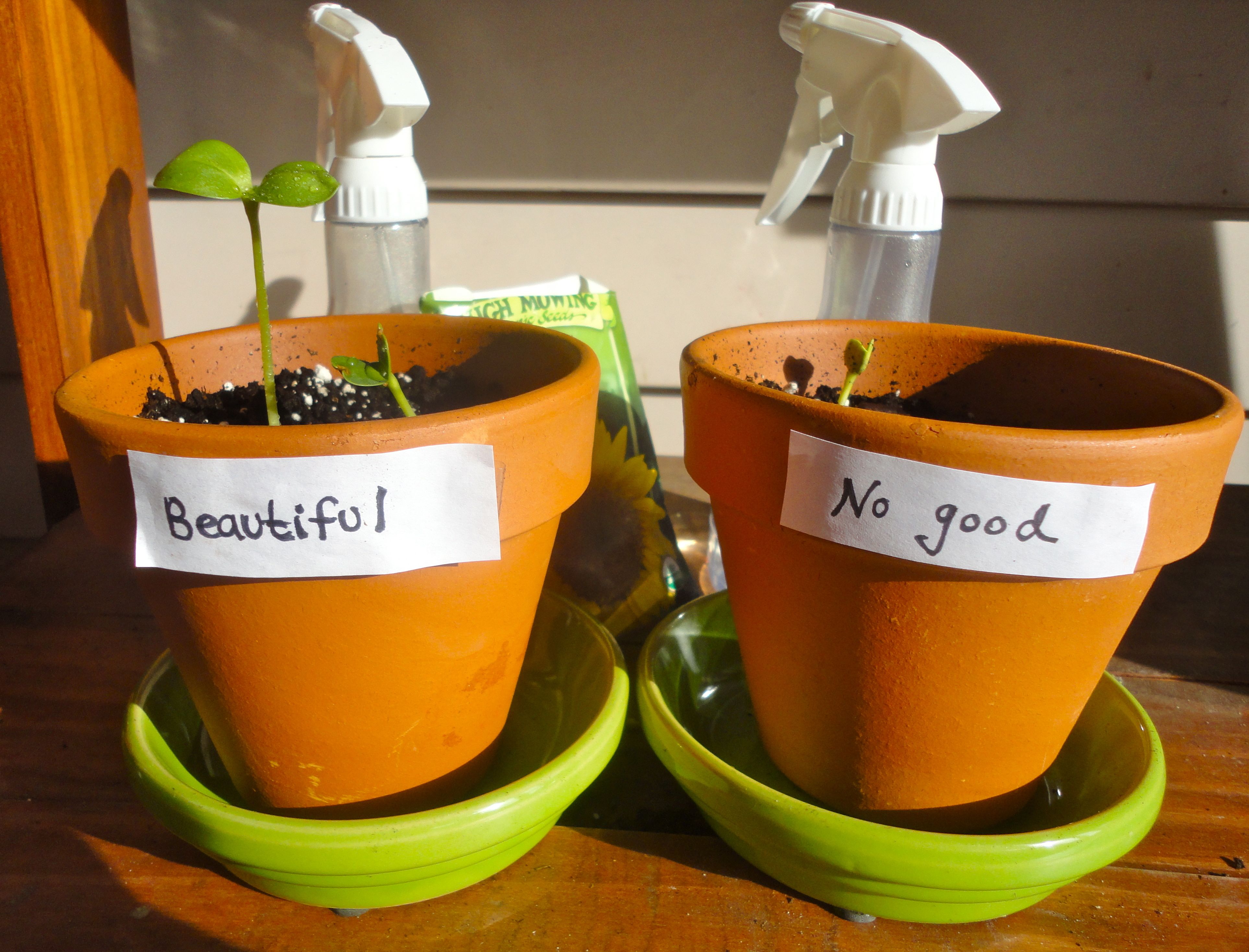
Is it coincidence or could this simple theory of positive thinking and careful speaking be true? It's up to you to decide, but either way it is certainly wholesome food for thought!

